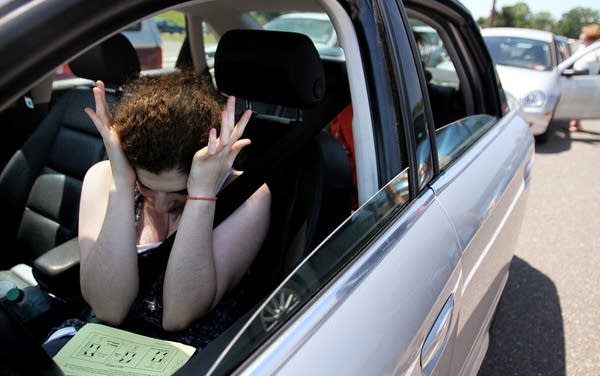FAQ: What you really need to know about Real ID

Talia Edelheit, 16, tries to calm herself before taking a driver's license road test at at the MInnesota Department of Public Safety location in Arden Hills, Minn.
Jeffrey Thompson | MPR News 2011
Go Deeper.
Create an account or log in to save stories.
Like this?
Thanks for liking this story! We have added it to a list of your favorite stories.


